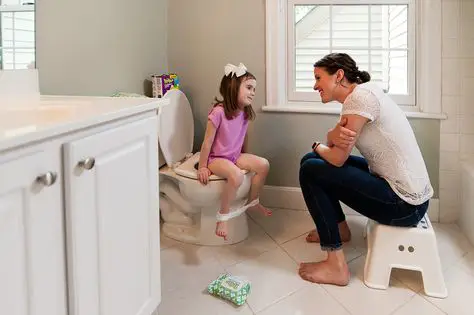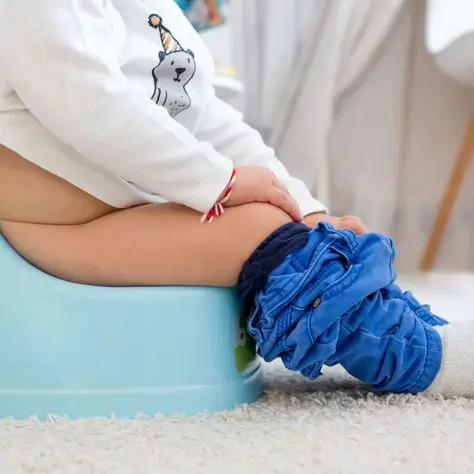
Potty Training
- Home
- ABA Intervention
Potty Training
Potty Training: Helping Children Achieve Independence

At YOU CAN, we offer a supportive, structured approach to potty training for children with developmental delays, autism, or other special needs. Potty training can be a challenging milestone for many children, but with patience, consistency, and a personalized approach, it is achievable. Our Potty Training Program is designed to help children develop the skills and confidence they need to use the toilet independently, while also providing support to parents throughout the process.
Why Potty Training is Important
Potty training is a significant developmental milestone that promotes independence and self- esteem. It is essential for children to learn appropriate toileting behaviors, which not only contributes to their daily hygiene but also prepares them for school and social interactions. For children with special needs, potty training can sometimes take longer and may require additional support, but with the right techniques, progress can be made at a steady pace.

Key Goals of Potty Training
Independence
The main goal is to help the child achieve full independence in using the toilet, including understanding when to go, how to use the bathroom correctly, and maintaining hygiene after using the toilet.
Consistency
Potty training requires consistent practice and reinforcement. We work with families to create a consistent routine that is followed both at home and in therapy settings to help children understand the expectations.
Reducing Accidents
With structured and clear instructions, children learn to recognize the physical signs that they need to use the toilet, reducing accidents and increasing self-control.
Positive Reinforcement
Positive reinforcement plays a key role in encouraging and motivating children during the potty training process. We celebrate successes, no matter how small, and use rewards to build motivation.
Approach to Potty Training
Assessment of Readiness
Individualized Plan
Positive Reinforcement and Rewards
Use of Visual Supports
Creating a Routine
Addressing Setbacks and Challenges
Parent and Caregiver Support
Overcoming Common Challenges in Potty Training
Fear of the Toilet
Some children may experience fear of the toilet, especially if they’ve had negative experiences. To address this, we work on desensitizing the child to the toilet, using positive reinforcement, and introducing the toilet gradually.
Accidents
Accidents are a normal part of potty training. We emphasize a calm, patient approach when accidents happen, and avoid punishment. Instead, we use accidents as teaching moments to help children understand the need for timely bathroom visits.
Regression
Occasionally, children may experience a regression in potty training, especially after changes in routine or stressful situations. Our program includes strategies for handling regression and getting the child back on track.
Benefits of Potty Training
- Increased Independence: Children learn to manage their toileting needs on their own, boosts self-esteem and fosters independence.
- Improved Hygiene: Potty training promotes proper hygiene habits, which are essential for health and well-being.
- Social Readiness: Successful potty training is often a prerequisite for attending school, daycare, or social activities, enhancing the child’s social opportunities.
- Positive Behavioral Growth: Through consistent reinforcement, children gain a sense of achievement, which contributes to positive behavioral development.
Who Can Benefit from Potty Training Services?
- Children with Developmental Disabilities, Autism Spectrum Disorder (ASD), Speech Delay, and Slow Learners
- Children with Developmental Delays
- Children Who Are Struggling with Potty Training: If a child is having difficulty with potty training, our program can offer the extra support and guidance needed for success.
- Parents Seeking Guidance: Parents who need advice, support, and techniques to help with the potty training process at home.
